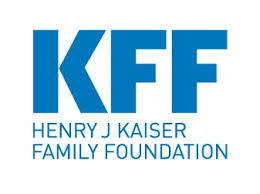Sales and Marketing: Facts & Figures
 Health care continues to be one of the top issues that voters want to hear candidates talk about during their 2018 congressional campaigns, according to the results of Kaiser Health’s June 2018 tracking poll. One-fourth of voters say health care is the “most important issue” for 2018 candidates to discuss during their campaigns, which is similar to the share who say the same about the economy and jobs (23 percent). While health care is a top issue for Democratic and independent voters, it remains a second-tier issue for Republican voters.
Health care continues to be one of the top issues that voters want to hear candidates talk about during their 2018 congressional campaigns, according to the results of Kaiser Health’s June 2018 tracking poll. One-fourth of voters say health care is the “most important issue” for 2018 candidates to discuss during their campaigns, which is similar to the share who say the same about the economy and jobs (23 percent). While health care is a top issue for Democratic and independent voters, it remains a second-tier issue for Republican voters.
Few voters (about one in 10) say a candidate’s support for a variety of different health care positions will be the “single most important factor” in their 2018 vote choice. But among the health care issues provided, majorities of Democratic voters (81 percent), independent voters (63 percent), and Republican voters (51 percent) say a candidate’s support for continued protections for people with pre-existing health conditions is either the “single most important factor” or “very important, but not the most important factor” to their vote.
Most of the public – including majorities of Republicans, Democrats, and independents – say it is “very important” to them that the ACA’s provisions protecting those with pre-existing conditions remain law. Three-fourths say it is “very important” that the ACA provision prohibiting insurance companies from denying coverage due to someone’s medical history remains law, and seven in ten say the same about the ACA provision prohibiting insurance companies from charging sick people more. Nearly six in ten Americans say they live in a household where someone has a pre-existing medical condition.
A majority of the public – including 83 percent of Democrats, 72 percent of Republicans, and 73 percent of independents – support President Trump’s plan to require drug manufacturers to publish list prices for their prescription drugs in television advertisements.
While about seven in ten Americans (71 percent) have seen or heard advertisements for prescription drugs, about one in seven say they have talked to their doctor as a result of seeing an advertisement for a prescription drug. Yet, among the 14 percent of the public who have talked to their doctor about a drug they saw advertised – more than half (55 percent, 11 percent of adults) say they were prescribed the drug they asked about and half (48 percent, 10 percent of adults) discussed the price of the drug with their doctor. Also, about four in ten (41 percent) said their doctor recommended an OTC product instead.
Source: Kaiser Health Tracking Poll, June 2018


